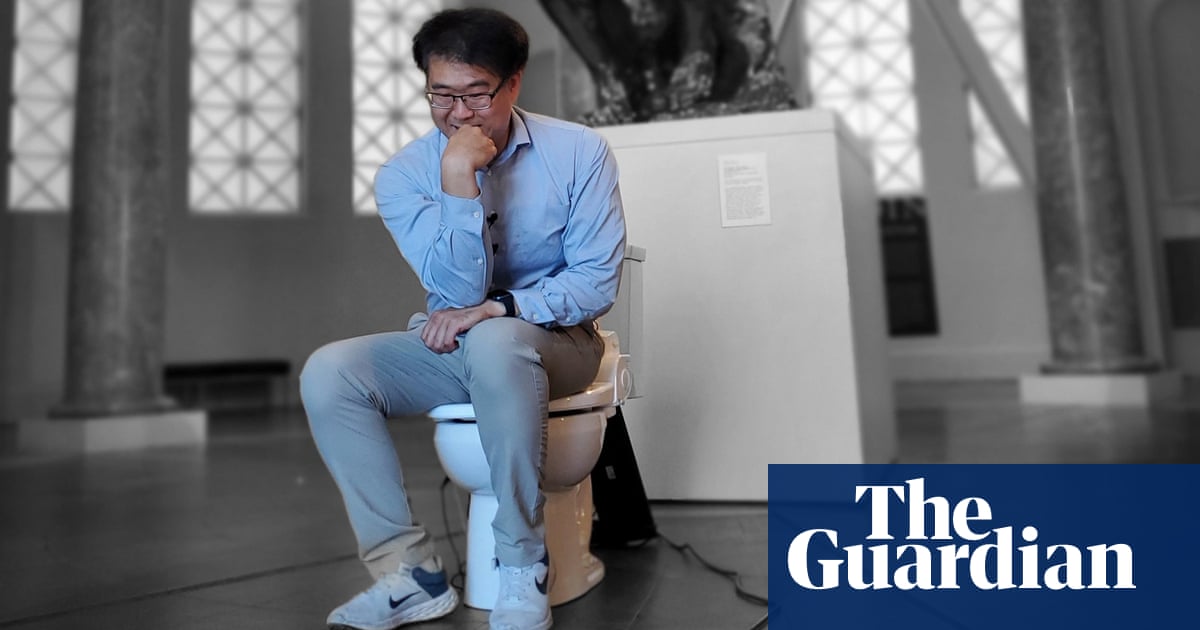
The annals of science brim with researchers who pushed the boundaries of sense and good taste in a laudable quest for knowledge. With the unveiling of the 30th annual Ig Nobel awards, another case shall be added.
To test the validity of a story in a work of ethnographic literature, Metin Eren, an anthropologist at Kent State University in Ohio, made a knife from his frozen faeces. He then set about butchering an animal hide, an endeavour that ended in failure.
“It’s an honour to be recognised,” Eren said, before the ceremony in which he was honoured for his work on Thursday. “I’ve followed the Ig Nobels my entire life. It’s a dream come true. Really.”
Not to be mistaken for the more prestigious – and lucrative – Nobel prizes, to be doled out in Scandinavia next month, the Ig Nobels celebrate research that “first makes people laugh, and then makes them think”.
In a ceremony held online, rather than at Harvard University as usual, 10 awards were handed out for notable achievements in physics, peace, psychology, economics, medicine and more. In lieu of a handsome windfall and medal, the winners received a paper cube and a £10tn dollar bill from Zimbabwe.
This year’s awards included a physics prize for work that recorded the shapes earthworms adopt when vibrated at high frequency. The peace prize honoured the governments of India and Pakistan for having their diplomats ring each other’s doorbells in the middle of the night and run away before anyone answered.
The UK can once again hold its head up high. Chris Watkins, a psychologist at the University of Abertay, shared the economics prize. His research found that French kissing was more common between partners in areas of high income inequality. “If kissing, as hypothesised, is an important gesture for keeping a long-term relationship going, our data show that people engage in it more in economically harsher environments,” he said.
Boris Johnson shared the medical education prize with Donald Trump, Vladimir Putin and a choice selection of other world leaders for demonstrating during the Covid-19 pandemic that politicians can have a more immediate effect on life and death than scientists and doctors can.
The psychology prize went to researchers who discovered a way to identify grandiose narcissists from their eyebrows. “It’s exciting, it’s a fun award,” said Miranda Giacomin, who worked on the study at MacEwan University in Alberta, Canada. Her work built on research that found people could sometimes spot narcissists from their facial features. The eyebrows, Giacomin suggests, are key. Asked if she had distinctive eyebrows herself, Giacomin said: “I’m definitely more conscious of them now than I was before, but I’m mostly conscious of other people staring at them once they hear about this research.”
The acoustics prize went to a team that enticed a Chinese alligator to bellow at high pitch after inhaling helium. The work informed investigations into the role of bellows in communicating body size in courtship and territorial claims.
Richard Vetter, a retired researcher at the University of California, Riverside, claimed the entomology prize for gathering case studies on arachnophobia among insect experts. He concluded that fear of spiders from an early age was not overcome by a career handling insects. “The fact that there’s any arachnophobia in entomologists struck me as bizarre,” he told the Guardian, though spiders are not insects.
Yet another gong went to Dutch and Belgian researchers for laying out the diagnosis for misophonia – the distress experienced on hearing another person chew – and showing that talking therapy helps treat it. The management prize went to five Chinese assassins who subcontracted the hit to each other but failed to get the job done.
Eren, who shared the materials science prize, said he and colleague constructed stool tools to test an old story repeated in the book Shadows in the Sun. The story tells of an Inuit man who, threatened with eviction from his ancestral home, fashions a knife from frozen faeces, kills a dog, turns its bones into a sled, and disappears into the night.
“It was a humorous rallying cry for evidence and fact checking,” Eren said of the unfunded work. “It’s a great story of human ingenuity, but we need to question and get evidence for everything that supports stances we hold dear to our heart, especially in these dark days.”












